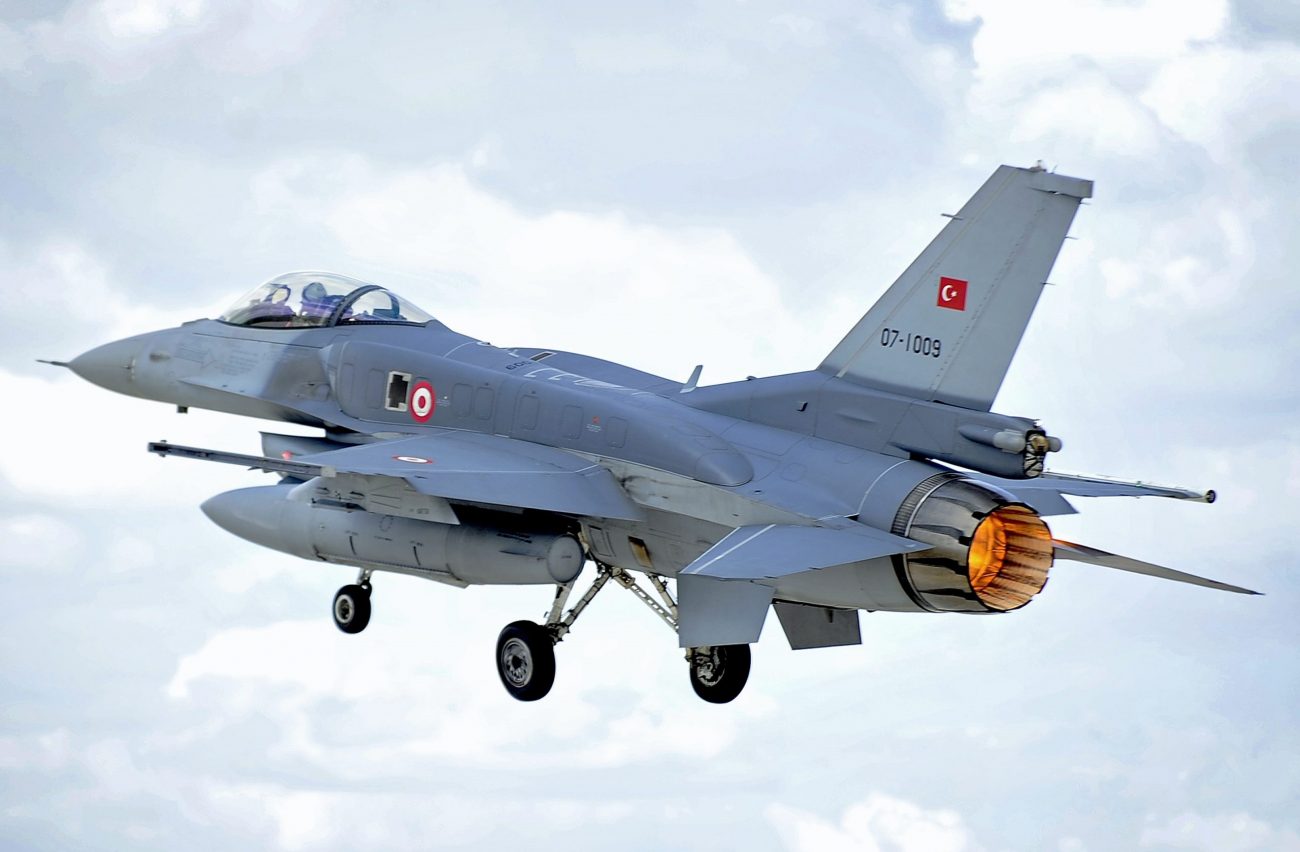Following a prolonged delay that led to the contemplation of acquiring Eurofighter Typhoons and Dassault Rafales, Turkey may soon secure the much-awaited green light from the US Congress to procure its desired F-16 fighter jets.
President Joe Biden has formally communicated his intention to initiate the notification process for the sale of Lockheed Martin F-16s to Turkey, contingent upon Ankara’s completion of Sweden’s NATO accession.
In a letter addressed to key leaders of Capitol Hill committees, President Biden urged Congress to approve the sale “without delay,” according to a statement from a US official.
This follows a letter sent by the White House on January 24, urging Congress to greenlight the US$20 billion sale of F-16 aircraft and modernization kits to Turkey, according to Reuters.
The State Department affirmed that the Biden administration supports modernizing Turkey’s F-16 fleet. However, it noted the US Congress’s crucial role in this process.
Deputy spokesperson Vedant Patel said, “President Biden and Secretary Blinken have been very clear of our support for modernizing Turkey’s F-16 fleet, which we view as a key investment in NATO interoperability. But beyond that, we also recognize that Congress has a key role in reviewing arms sales, but I’m just not going to confirm or get ahead of proposed defense sales or transfers until they are formally notified to Congress.”
Separately, on January 25, US Ambassador to Turkey, Jeff Flake, expressed confidence that “President Tayyip Erdogan will give a final sign-off on Sweden’s NATO membership within days.”
Flake anticipates that once the formal ratification document reaches Washington, the US State Department will officially notify Congress of the US$20 billion F-16 deal.
The Turkish Parliament’s ratification of Sweden’s NATO membership bid on January 23 was a pivotal moment, overcoming a 20-month delay and clearing the path for the expansion of the Western military alliance.
The decisive vote of 287-55 in favor of Sweden becoming the 32nd NATO member positions President Erdogan to sign the legislation, which will be published in Turkey’s Official Gazette. Additionally, the instrument of accession for Sweden needs to be sent to Washington.
Ambassador Flake remains confident in the expeditious progress, stating, “I see no reason why, with the parliament having acted here, that Turkey would wait.”
“So I would expect as soon as that is conveyed to Washington, then congressional notification (of the F-16 sales) will happen,” he added.
However, the US State Department has refrained from providing an exact timeline for the formal notification process regarding the F-16 sale.
Turkey’s Negotiations For Eurofighter Acquisition
With Turkey successfully clearing the path for Sweden’s NATO membership, attention has now shifted to the protracted approval of the sale of F-16 fighter jets by the United States, a process intricately linked to Ankara’s approval of Stockholm’s NATO application.
Although the Biden administration has consistently expressed support for the US$20-billion deal to modernize Turkey’s F-16 fleet, it has not explicitly tied the sale to Turkey’s ratification of Sweden’s NATO application.
Yet, some influential members of Congress have stated their reluctance to endorse the sale until Turkey gives its nod to Sweden’s accession to the alliance.
While officials and analysts anticipate swift action on the F-16 sale post-Turkey’s ratification of Sweden’s NATO membership, a clear timeframe for US Congressional approval remains absent.
Turkey’s request to purchase Lockheed Martin’s advanced F-16s, following the removal of its participation in the F-35 program, aims to replace its aging F-16 fleet, scheduled for phase-out from the 2030s onward.

The deal, crucial for Turkey’s air force, involves acquiring 40 Block 70 F-16s and 79 modernization kits.
However, frustrated by the prolonged approval process, Turkey explored alternative options, including the potential procurement of Rafale and Eurofighter Typhoons.
In November, discussions emerged regarding Turkey’s interest in buying 40 Eurofighter jets from a consortium involving Germany, Spain, Italy, and the United Kingdom.
Despite objections from Germany, Ankara has persistently urged Berlin to align with the NATO spirit in the discussions regarding purchasing 40 Eurofighter jets.
However, experts speculate that Turkey’s initiation of negotiations for an equal number of Eurofighters might be a negotiation tactic. The move could serve as a signal from Ankara, indicating that it has alternative sources for fighter jets and is not solely reliant on the requested US-made F-16 fighter jets.
- Contact the author at ashishmichel(at)gmail.com
- Follow EurAsian Times on Google News




